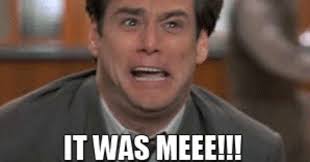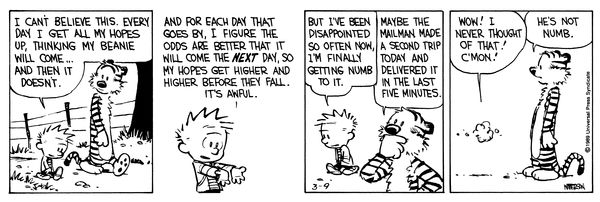The more thrillers I read, the more I gravitate to ones with well-drawn unreliable narrators. They’re fun because those characters seem to be the most interesting, but also because it’s such a mixed bag. The books that pull this off tend to be really amazing, while the ones that don’t can be so bad that they entertain us regardless. And that’s what we really want out of a book–to be entertained.
Then, there are the ones that just leave us feeling used and dirty.
Alright, then! Which books fit in this thriller sub-genre, and which are worth reading?
For me, the go-to stellar unreliable narrator novel that comes to mind is Bret Easton Ellis’s American Psycho. Patrick Bateman is certifiably insane, and seeing the world as distorted through his eyes is absolutely fascinating. It is the character of Patrick that makes this book so special.
I also liked American Psycho because of Patrick’s obsession with Huey Lewis and the News and his tendency to quote the band ad nauseam. That, and a few other details, firmly date this book as set in the late 1980s and completely works in context. (Kind of like all those pop culture references in Clueless, only with more murder. But I digress).
Gone Girl by Gillian Flynn is another prime example. Every thriller writer post-Gone Girl wanted/wants to write the next one. (I read a Goodreads review for a bad book the other day and had to snort at the comment, “You’re trying to be Gone Girl. Y’all are not Gone Girl.”). Gone Girl’s unreliable narrator element has the added twist of being a fabricated diary. It’s only half-way through that we realize that the entries that have made us like Amy all along–and assume that her husband killed her–are a device in her sociopathic scheme.
There’s You by Caroline Kepnes, which follows killer and romantic-obsessive Joe Goldberg’s doomed relationship with Guinevere (who is much less charming in the book, which was probably intentional given her fate). I personally believe Penn Badgley accepted the title role for the adaptation as unreliable narrator penance for what he did to the audience in Gossip World.
And in The Woman in the Window by A.J. Finn, the reader thinks they know the reason for the main character’s unreliability, but the full picture doesn’t emerge until later. As a mother, I had some issues reading this book; but as a writer I really respect the twists and turns.
I can’t name the book that is probably the best at the unreliable narrator aspect, because calling it out would ruin the surprise. Let’s just say it’s a nice one to read quietly when you don’t feel well.
Unreliable narrator books are something of a crapshoot, though. For each good one I’ve read, there’s one that’s just been a cheat. I’m not going to list examples–I don’t like to comment negatively in public space, especially as I have my own work to be judged–but I want to talk mechanics.
Here’s the deal. If you, as a writer, are going to paint an unreliable narrator, you cannot cheat your reader. You can omit certain details, but only if it makes sense to do so. For example, if your main character spends a significant portion of their time at a location where they plan to seek revenge against a particular person, maybe it doesn’t make sense for them to not once name, or think of, that person in their head.
Or, if the killer is the narrator, it does not make sense for a 300-page book to spend the entire time from that person’s perspective with no indication, clue, or internal thought related to the fact that they are, indeed, and murderer the police have been searching for the entire time.
Books like this always make me think of this scene from Liar Liar:

Unreliable narrator books are tricky because by nature, the writer is lying to the reader to some degree. The way that character sees the world is inaccurate. The key difference is the degree to which the reader is aware. In the books that pull this off, the reader is aware of the instability of the main character, or the fact that they’re not getting the full picture (for whatever reason, but again, so long as it makes sense in context). In the books that don’t pull this off, the big reveal is a “gotcha, sucka!” moment that always makes me toss my Kindle because I wasn’t fooled due to craftiness. I was cheated.
My refrigerator bears a post-it note: “Tell the Truth.” This was advice from Stephen King’s On Writing, where he advised that no matter what, follow where your story takes you. Tell the truth with respect to what your character would do. (If I recall correctly, this advice was offered in the context of him explaining why Paul Sheldon didn’t end up being fed to Annie Wilkes’s pigs and his skin made into the last Misery book. God, I love that man.) If what your unreliable narrator is up to, or thinking, makes sense–even if it is unreliable–the writer is doing their job. The reader is being fooled, not cheated.
And they will not toss their Kindle.


